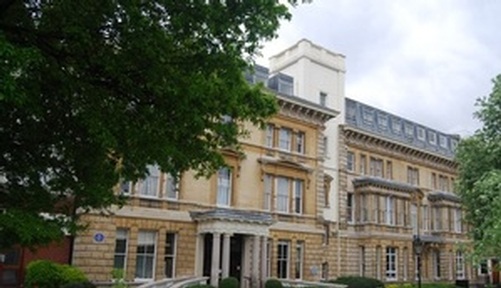First care home with onsite nursery boosts self-worth and cognitive function
The first care home with an onsite nursery has been found to improve residents’ physical mobility, verbal and nonverbal communication as well as their cognitive function and self-worth, according to a new study.

The research looked at the impact of Apples and Honey Nightingale Nursery being based on the same site as Nightingale House, a care home for the Jewish community in South London.
Apples and Honey Nightingale Nursery opened in September 2017 and since then, every day children and residents have been doing activities together, including exercise classes, drama, baking, literacy and numeracy.
Some residents attend sessions with the children once a week and some do them daily, with the research by Dr Ali Somers, associate lecturer at Goldsmiths College, University of London, finding they showed an improved sense of self-worth by being able to play a role in a child’s life, cognitive stimulation from engaging in the sessions as well as increased physical movement.
Residents felt relief at not being the object of care
In addition, the study found one striking benefit for the residents was relief from being the object of care which can lead residents to feel disempowered and passive. Loneliness and isolation was also alleviated by building relationships with the on-site nursery children and their teachers.
Helen Simmons, chief executive of Nightingale Hammerson, which runs both the care home and the nursery, said: “The activities with the children distract the residents from their everyday aches and pains and give them a sense of purpose. Many attend on a regular basis and have special relationships with individual children which builds a real bond between them. We have some residents for whom it has given a whole new lease of life. The report highlights the real positive benefits for the residents and the home and steps we can take in the future.”
She added: “Overall the benefits have been found to build up over time and those who regularly socialise have reported significant improvements in mental health and well-being. The children’s presence has had a wider impact. The feel of the care home is lighter, filled with a new range of sounds and there is a deeper sense of community between all age groups, staff, family members, volunteers and residents.”
Following the success of the opening of the nursery and the TV programme 'Old People's Home for Four Year olds', there has been an explosion of interest in intergenerational projects.
All of the residents have benefitted
This study shows there are wider-ranging benefits for those that interact with the children, more than previously imagined, according to Nightingale Hammerson, which found all participating residents benefit, including those with dementia and with a wide variety of underlying health conditions.
The report reveals that a resident was brought to an intergenerational session by his son, who was visiting. Despite his 101-year-old father having been bed bound for months, the son got him up and brought him. The resident managed to stay for the full 90 minutes and his son began to cry, saying he was emotional as his father ‘was smiling and engaged, and was interacting’ adding he ‘had been more himself’ than his son had seen in years.

Farrah, a 90-year-old resident, said: “When I first arrived at the care home, I really didn’t want to go on. But then, when the nursery began I had a whole new life. I never had children of my own and it has been a wonderful experience. I have made so many new friends. I see the children almost every day, and I love being part of the children’s and teachers’ lives.”
While Arthur, aged 92, said that watching the children is “better than watching television. I can follow what’s happening and I like to see how the children’s minds work as they figure out how to move from one part of the room to another to get a toy they are interested in. It’s very uplifting and brings me joy.”
Apples and Honey Nightingale sets aside 20 per cent of nursery places for care home staff to use for their own children at a heavily subsidised rate. The majority of residents at Nightingale House are between 85 and 106 years old and the children who attend Apples and Honey Nightingale are aged between two and four years old.
For care homes considering introducing intergenerational activities, Nightingale Hammerson recommends:
• Ensure there is regular contact between the same children and residents as that has the greatest impact.
• Bring in early years teachers to lead intergenerational sessions, prioritising places for those residents with dementia.
• Promote greater cross-practice learning and feedback by developing joint training between early years teachers and care, engagement, nursing, and therapy professionals.
• Encourage members of staff from different professional teams (therapy, nursing, care, engagement, and nursery) to regularly observe intergenerational sessions in order to create a reflective environment for the programme to evolve and identify the widest range of benefits for residents. Early years teachers may spot opportunities to increase cognitive stimulation in sessions physical therapy teams run and vice versa.
Nightingale House was awarded the Jewish community’s first-ever overall ‘Outstanding’ rating in August 2018.
‘The Intergenerational Programme at Nightingale House: A study into the impact on the well-being of elderly residents’ was commissioned by Berman Charitable Trust.
Latest News
 29-Jul-24
Dementia Bus gives carehome.co.uk staff insight into life with dementia
29-Jul-24
Dementia Bus gives carehome.co.uk staff insight into life with dementia
 01-Mar-24
Find out the top care homes in 2024
01-Mar-24
Find out the top care homes in 2024
 21-Mar-23
UK's top care homes in 2023 revealed
21-Mar-23
UK's top care homes in 2023 revealed
 03-Jan-23
carehome.co.uk launches free care helpline
03-Jan-23
carehome.co.uk launches free care helpline
 13-Dec-22
5 mins with Emily Whitehurst, chief operating officer for Constantia Healthcare
13-Dec-22
5 mins with Emily Whitehurst, chief operating officer for Constantia Healthcare